Pakistan

Country Spotlight
Pakistan first tested nuclear weapons in May 1998 in response to nuclear tests by its regional rival, India. The program owes its success in part to A.Q. Khan’s clandestine international nuclear smuggling network. Pakistan has vastly expanded its nuclear forces and remains outside the NPT regime; the country is also a major source of proliferation concern.
See Pakistan's performance in
Region South Asia
~170 Nuclear weapons
≈ 4,900 Kg of highly enriched uranium (HEU)
6 Nuclear tests conducted
1998 Nuclear test moratorium began
Nuclear
- Began pursuing a nuclear weapon through uranium enrichment in the mid-1970s under the direction of A.Q. Khan
- Opposes negotiation on a Fissile Material Cutoff Treaty (FMCT) in the UN Conference on Disarmament
- Announced the development of low-yield tactical nuclear weapons in 2015
Biological
- No credible evidence of biological weapons program
- Has increased regulation and security of its domestic biological industry since the mid-2000s
- Like many other states, possesses significant dual-use biotechnology capabilities
Pakistan Biological Overview
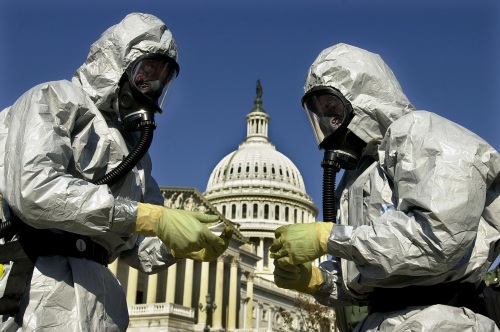
Tutorial on Biological Weapons Nonproliferation
Missile
- Deploys both ballistic and cruise missiles for nuclear weapons delivery
- Has received foreign assistance to aid in the development of its ballistic and cruise missiles, most notably from China
- Successfully tested the Shaheen III medium-range ballistic missile in April 2022 and the Ghaznavi short-range ballistic missile in August 2021
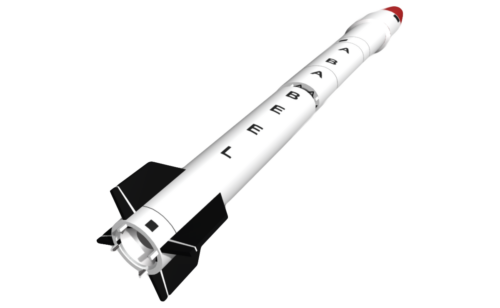
The CNS India and Pakistan Missile Launch Databases
Pakistan Missile Facilities
Chemical
- Is not known to have ever possessed a chemical weapons program
- Has periodically been accused of supplying chemical weapons or precursors to nonstate actors
- Plays an active role in the OPCW and supports provisions to increase trade and assistance for the peaceful development of chemical industries
Pakistan Chemical Overview
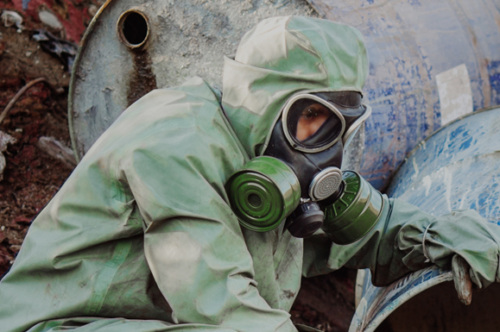
Tutorial on Chemical Weapons Nonproliferation
Treaties and Regimes Memberships
- NTI
- CNS
 Pakistan
PakistanAir Weapons Complex (AWC)
- Missile
Defense Science and Technology Organization (DESTO)
- Missile
Ghulam Ishaq Khan Institute of Engineering Sciences and Technology (GIKI)
- Missile
Karachi Institute of Power Engineering (KINPOE)
- Nuclear
Khan Research Laboratories (KRL)
- Missile
Kundian Nuclear Complex-1 (KNC-1)
- Nuclear
Mashhood Test Firing Range (MTFR)
- Missile
National Command Authority (NCA)
- Missile
National Defense Complex (NDC)
- Missile
National Engineering and Scientific Commission (NESCOM)
- Missile
National Security Council of Pakistan (NSC)
- Missile
Pakistan Atomic Energy Commission (PAEC)
- Nuclear
Pakistan Ordnance Factories (POF)
- Missile
Sonmiani Flight Test Range (FTR)
- Missile
Space and Upper Atmosphere Research Commission (SUPARCO)
- Missile
Strategic Plans Division (SPD)
- Missile
Analysis
Pakistan
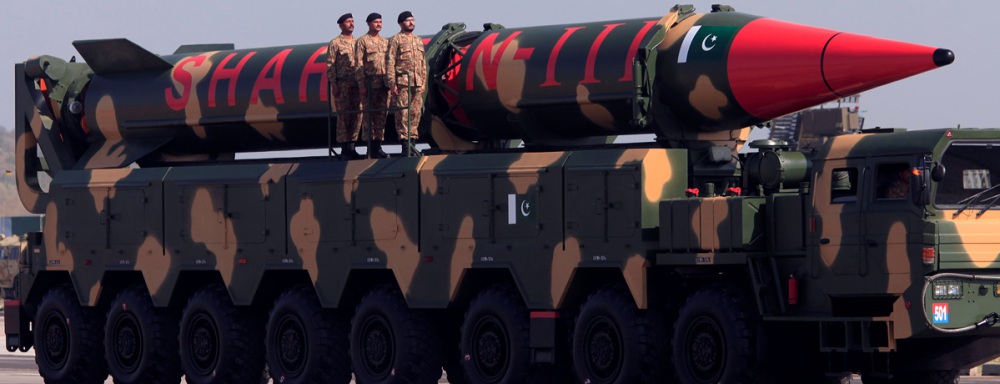
“Night of Murder”: On the Brink of Nuclear War in South Asia
India and Pakistan came close to using nuclear weapons. (CNS)
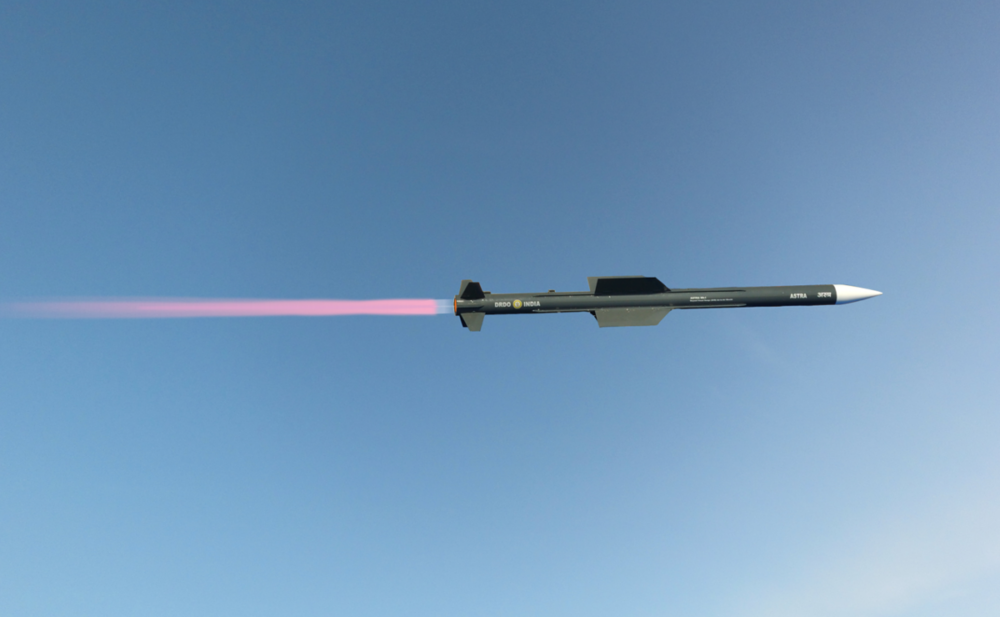
Cruising for a Bruising: How Cruise Missiles Are Threatening Norms Between India and Pakistan
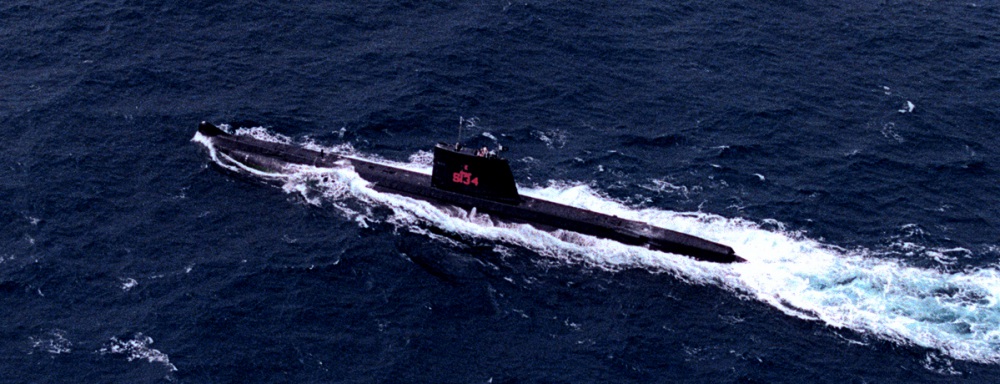
Pakistan Submarine Capabilities

Education Center
Extensive resources on nuclear policy, biological threats, radiological security, cyber threats and more.
Sources
Hans M. Kristensen, Matt Korda, and Eliana Johns, “Pakistan nuclear weapons, 2023,” Bulletin of the Atomic Scientists, 11 September 2023, https://thebulletin.org.
“Countries: Pakistan,” International Panel on Fissile Materials, 18 May 2020, fissilematerials.org.
“Pakistan Rules Out Test Ban Treaty Endorsement,” Global Security Newswire, 19 June 2009, nti.org; and “Statement by Ambassador Zamir Akram, Permanent Representative of Pakistan at the Conference on Disarmament (CD),” Geneva, Reaching Critical Will, 27 August 2009, www.reachingcriticalwill.org.
Mohammad Ilyas Khan, “Why Pakistan Is Opening Up Over Its Nuclear Program,” BBC, 21 October 2015, bbc.com.
US Department of State, “2015 Report on Adherence to and Compliance with Arms Control, Nonproliferation, and Disarmament Agreements and Commitments,” 5 June 2015, www.state.gov.
OPCW, “Statement by H.E. Ambassador Aizaz Ahmad Chaudhry, Permanent Representative of Pakistan to the OPCW, at the Sixty-Seventh Session of the Executive Council,” EC-67/NAT.12, 14 February 2012, www.opcw.org.
Shirley A. Kan, “China and Proliferation of Weapons of Mass Destruction and Missiles: Policy Issues,” CRS Report for Congress RL31555, (Washington, DC: The Library of Congress, 16 August 2010).
Asad Hashim, “Pakistan Successfully Tests Medium-Range Missile,” accessed April 14, 2021, www.aljazeera.com.
